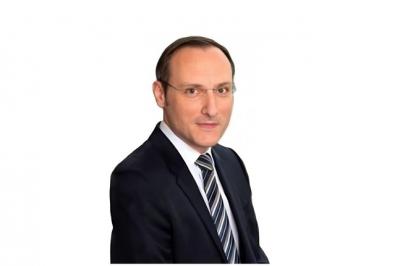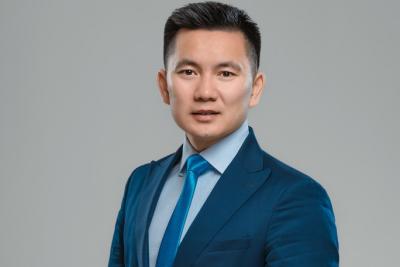The Evolution of Funds Management as Private Wealth Expands in Asia

David Perez de Albeniz of Allfunds
Jul 22, 2022
Hubbis and co-host Allfunds invited a group of hand-picked experts in wealth management to a private thought leadership discussion on June 9 at the Tower Club in Singapore. The mission was to debate the evolution of the fund offering in Asia and track key trends, as well as predicting what might be in demand amongst private investors in the future. The discussion was entirely off-the-record. Representing Hubbis was CEO and founder Michael Stanhope and representing Allfunds was David Pérez de Albéniz, Head of Asia.
A Thought Leadership Event
Costs are rising across the board in the wealth industry, while performance targets keep increasing
The business development director of a leading European asset management group based in Asia reported that rising costs are front and centre of many internal discussions these days, while at the same time targets in the form of KPIs keep moving higher, a contradiction everyone seems to be struggling with. He reported that manager research, operations relating to funds servicing, and staff across all teams just keep getting more expensive. As pandemic restrictions ease across the region, travel costs have risen sharply.
Digitisation and digital transformation have accelerated rapidly out of necessity, improving some efficiencies and helping to improve the client offering, but also adding another layer to IT costs, budgets and constant expenditure related to new digital solutions and ongoing upgrades.
Add to that all the other costs and one consultant present reported that banks and other operators in wealth management are focusing on the location of key talent and where they place their headcount across the region, with an eye also on how geopolitics are playing out.
There is a focus on scale and markets that offer immense potential for the future, and with intensifying competition in all areas M&A is another key trend
In terms of business priorities and target markets, China and India appear to be high on the lists. But broadly in the wealth industry, competition is tougher and there is widespread pressure on fees.
Accordingly, for many of the banks it is a scale game to spread the costs across a larger platform while boosting revenues by dint of the larger numbers of customers. This requires the right technology, of course, with some banks layering on advances, and others needing more radical internal surgery to remain competitive.
A guest observed that China is increasingly being carved out from the rest of Asia as a standalone market set apart from regional or global norms. “China is becoming like Japan was some decades ago, in terms of being a very distinct investment market and requiring a distinct approach from anyone in the world of asset management or wealth management generally,” he observed. For fund managers operating in Asia, this is a significant paradigm shift.
Key trends in the industry across the board are the drive towards ESG, China and private markets, this expert reported. “Everybody seems to have those three on their top five list of missions ahead,” he told guests. “And a lot of effort and thought is being delivered to delivering differentiation in those areas, and to delivering a profitable formula.”
Another consultant added that there is a trend to M&A amongst all types of wealth industry players. This is a global theme emerging in Asia as well.
ESG is a key issue for the wealth industry to grapple with, but getting it right is difficult and expensive
Expanding on the topic of ESG, a guest noted that ESG needs to be carefully approached and curated as it is rather open to interpretation and some companies and participants have been pulling the wool over people’s eyes in terms of branding themselves ESG-centric but in reality, not following these principles at all. “Greenwashing or generally misleading are major concerns, and impact intermediaries’ reputations if they promote the wrong names,” he said.
A banker commented that a by-product of the drive to ESG is the shortage of real talent in the area as everyone hunts for ESG team members. “Costs in this area keep rising, but as demand from distributors and investors - especially institutional names – keeps surging, we have little choice but to curate the best possible ESG offering. Due diligence questionnaires amongst clients now run to several pages on ESG, whereas some few years back there was only modest attention paid. As an asset manager, we have to answer this need.”
ESG is not only an external issue; it must be embraced from within the organisations
A banker added that those who promote ESG also need to dance to the same tune. He said the ESG DNA needs to be reflected throughout organisations, not only promoted for marketing purposes. Another guest added that the approach to the ‘E’ element of ESG needs to be carefully nuanced in Asia, as many countries are moving at a far slower pace in terms of their carbon emissions and targets. He said this affects many mainstream investments, and even private equity portfolios, as these are key potential problem areas for the future if there is a lack of data and transparency.
A guest observed that there are currently very few ESG heroes, and equally there are very few ESG outright villains, which is why exclusion is certainly not an approach his bank takes.
“I think the industry challenge right now is not only to promote ourselves as promoting ESG and being ESG-centric, but really engaging with it, being the example to others,” another expert commented.
A fellow invitee agreed, adding that his (Japanese-headquartered) asset management institution is aiming to not only wear the badge, but to reinvent itself from the bottom up as a sustainable organisation embracing these precepts.
He told guests that the firm sets increasingly rigorous targets for waste, recycling and carbon and is increasingly expecting these to be reflected in those businesses they work with.
“This is still in its infancy realistically,” he said, “but we are trying to live and breathe it as an organisation, even down to giving everyone a recyclable lunchbox so that we don't use so much throw away plastics.”
ESG is slowly and increasingly impacting the choice of products and funds in Asia, but returns and ‘sellability’ of strategies are the priorities
“Is it working?” another expert asked. “Are gatekeepers and fund selectors choosing you over other asset management names because of everything that you have just explained and how this is becoming ingrained in the culture?”
The answer was both yes and no, with the representative of the Japanese firm reporting that gatekeepers appreciate the drive and momentum, but ESG is only one of the checkpoints in the decision-making process. “They do not say they will onboard us because of ESG but ESG is an important part of the overall ratings we obtain,” came an answer.
Another guest agreed, adding that they had researched into the number of times fund selectors or institutional clients has in 2021 asked about their approach to ESG, and found that more than 50% had questions in the RFPs about ESG.
ESG is at the centre of more and more gatekeeper dialogue but Asia still lags well behind Europe in this regard
“As we have more conversations with gatekeepers, especially European gatekeepers, we're definitely having more conversations on ESG, the approach and engagement,” he reported. “In Asia this is also definitely picking up as well. We see the European gatekeepers being rather more discerning about how to truly think about ESG for the clients, and I feel in Asia, no names mentioned, it is more a box ticking exercise and a different conversation.”
He added that North Asian clients are definitely ahead in terms of ESG, especially those from Japan and Korea, including the sovereign funds, the central banks, the pension funds and other major investors. “Meanwhile, Southeast Asia is slowly picking up,” he reported.
Another guest reiterated that gatekeepers in Asia remain focused firstly on returns, and then other elements such as ESG as nice add-ons, albeit becoming more important year on year as it increasingly becomes more central to the sale process.
A speaker noted how most fund houses would struggle to produce a history in ESG beyond three to five years, aside perhaps some of the newer Nordic names who set out with a dedicated ESG mandate perhaps seven to 10 years ago. “And I think as the pandemic abates and geopolitical worries lessen in the future, people will focus more on where ESG truly aligns with financial performance,” he explained.
Private markets and DPM are increasingly key to the wealth industry in Asia for HNW and UHNW clients
An expert observed that it is easier to get the ESG focus right in terms of private markets than the public market investments, as they are longer-term in nature and the investors can more easily engage with the companies, although the public investments have access to more readily available data and more readily packaged.
With the continuing trend to private markets and the weakness and volatility in public markets, an expert observed that it is increasingly crucial to obtain good access to the right deal flows. “The big ask these days is how to get hold of that capability for clients,” he said.
He added that DPM and advisory had risen to perhaps 10% of AUM in Asia in recent years, from a very low base, boosting recurring revenues, with some of the banking groups forming closer partnerships with their own asset management entities, and some setting up specialist partnerships.
Another expert raised the issue of fractionalisation of private assets via tokenisation and whether there are major regulatory hurdles to providing these sophisticated products to what could potentially be an unsophisticated mass affluent or event retail market.
“The democratisation of access to private companies is very important,” this guest observed, “because so many companies that used to go public are now private for many years longer. But liquidity is an issue of course, as these are long-term investments realistically.”
Differentiation is a key objective for all types of operators, certainly including the fund houses
A funds specialist observed how the asset management companies are looking to differentiate their offerings with additional thematic strategies and aiming to capture current and future trends and markets or countries of prominence.
He said this period of global market hiatus and uncertainty actually opened the door to more thoughtful conversations with clients, and to take a step back, to share their macro view and to come across as a thought leader.
“We want to bring some ideas and solutions, and not just from a product perspective,” he explained. “We are taking a step back to see how we can look for differentiated solutions and to look for more customised solutions for clients and to focus on more holistic partnerships rather than just product pushing across clients.”
Another expert agreed but said that they still keep a tight focus on delivering the right investment returns, which are vital to the gatekeepers.
“They want to know if the angles we are taking will really lead to the right outcomes,” he reported. “We still need to look all the time for the new angles and the new ideas to catch people’s attention, which we do, but we need to keep that keen eye on returns, on liquidity and the types of clients and portfolios that we are targeting.”
Differentiation is of course also driven by the quality of ideas and the delivery of ‘smart’ strategies that hold water
A guest reminded other invitees of the comment right at the start that ultimately targets and KPIs keep rising so the main mission is to help the gatekeepers help their banks hit those targets. “But the key,” offered another expert, “is to help them see the turning points in the cycles, to add value and really offer them solutions that fit the times and the clients.”
Another funds house representative agreed, adding: “We are getting more and more calls from the gatekeepers asking us for ideas and solutions, so we are becoming effectively solutions providers for big names that come to us and tell us these are our challenges and here's what we need to achieve, so please configure us the solutions. This is really happening regularly in Asia nowadays.”
He closed the discussion by remarking that this is also resulting in the delivery better outcomes for clients, and that they were essentially working more in partnership with the end clients and with the gatekeepers. And that working on digital distribution, they are doing more goals-based investment solutions for robo-advisories and other digital platforms.
A Word of thanks from Allfunds
Allfunds’ David Pérez de Albéniz closed the event with a warm thank you to those who participated. “Our mission is to be highly transparent and make sure anyone we work with fully understands our platform and the model, and appreciates the whole added value we can offer, so they, in turn, can extract maximum value from the platform,” said Pérez de Albéniz. “We have enjoyed many insights today, all of which will help us refine our approach and mission. Thank you.
Allfunds at a Glance
Allfunds is one of the leading B2B WealthTech platforms for the fund industry, offering fully integrated solutions for both fund houses and distributors.
Allfunds has built and continues to evolve an ecosystem that covers the entire fund distribution value chain, with solutions including dealing, custody, and asset servicing, distribution and rebates management, data and analytics tools, RegTech, ESG screening, as well as digital and portfolio management solutions. The platform markets itself as being the sole fully integrated one-stop shop in the industry.
Founded in Madrid in 2000, Allfunds now spans 16 offices around the globe, covering all major financial markets. Today it has assets under administration of around EUR 1.4 trillion[i], operates in more than 62 countries, works with some 1,200 fund groups which can be accessed by 831 asset owners such as fund distributors and institutional investors. The platform is therefore deeply immersed in the world of wealth management.
David Pérez de Albéniz, Head of Asia, Allfunds told Hubbis in past interviews and events: “Asia is remarkably important for Allfunds. We listed back in April [2021], and since then, Asia is one of the key topics of interest for our investors and shareholders. How are we doing in Asia? What are our plans, and what strategies do we have? Well, I can state that we are totally committed to the region, we offer open architecture, and we are eager to work with the industry, with our clients to develop the best approaches, services and uptake. So, we look forward to this exchange of ideas and insights and will always do our best to refine our platform and our features to the needs of this dynamic market.”
[i] *as of 31 March 2022

Head of Asia at Allfunds

More from David Perez de Albeniz, Allfunds
Latest Articles






